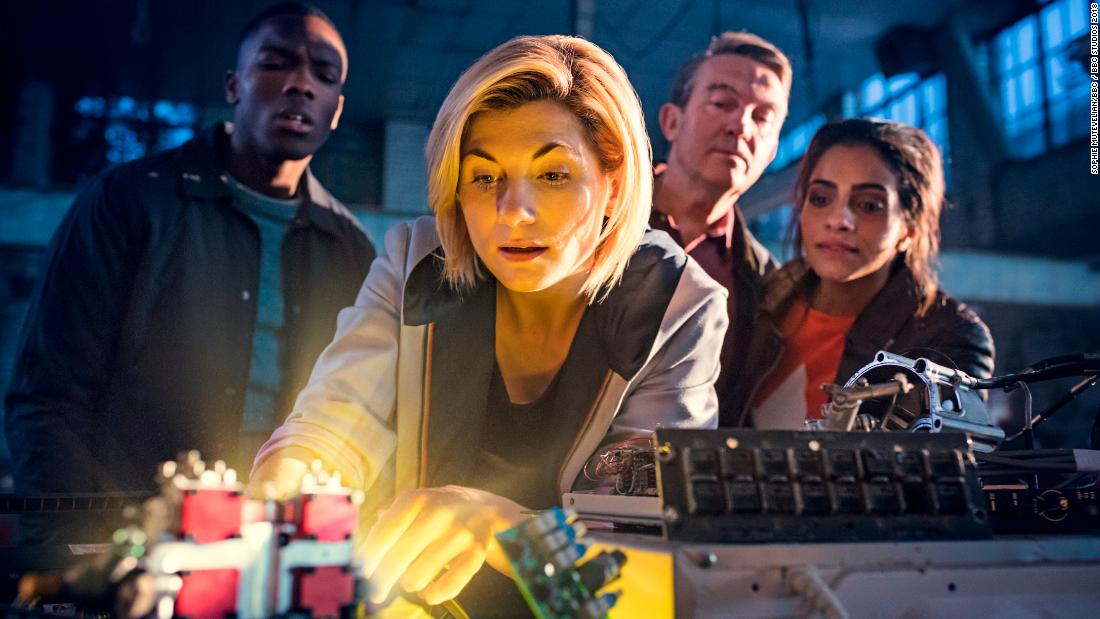
The latest wrinkle on the BBC series has both sparked interest and (inevitably) triggered debate, as studios and networks try to find a sweet spot between breathing new life into long-running franchises and unleashing "You ruined my childhood" outrage, all while braving thorny questions about whether changing genders of once-male characters is simply a gimmick or genuinely represents progress.
The vocal pushback against female versions of familiar titles seemed to peak with the exaggerated, made-for-ridicule online response to the "Ghostbusters" reboot in 2016.
Since then, there's been "Ocean's Eight" -- which largely avoided the same level of vitriol -- Marvel's upcoming "Captain Marvel," and several other projects in production or development, such as "Dirty Rotten Scoundrels" and "The Splash." There has also been at least discussion about shaking up other well-known characters, such as James Bond.
There's no hard-and-fast formula for these calculations, but certain considerations seem obvious. In the case of "Doctor Who," viewers are already dealing with an alien in the realm of fantasy, as opposed to something like Bond, whose exploits -- however fantastic -- are more closely tethered to reality. (Through the years Bond has dealt with other hurdles, including the fact that the Cold War creation has survived long enough to see the Russians come back into vogue.)
As USC Annenberg professor Sarah Banet-Weiser told the Hollywood Reporter, more irate reactions tend to surround projects within "geek genres," as well as movies that are strongly rooted in the adolescent years of the men (mostly) registering the complaints.
The most compelling argument against female reboots, frankly, isn't the bleating of Internet trolls, since it's impossible to satisfy everyone with such properties, and the loudest critics often aren't necessarily representative of the wider (more reasonable) fan base.
That said, the level of fan investment should be a consideration -- there's a lot more equity built up in 007 over the years than, say, "Ocean's 11" -- as well as the challenge of whether a change brings anything new to the party creatively, as opposed to just offering studios a fresh and shiny marketing hook.
The most pressing issue, though, is whether revisiting a familiar property with a traditionally male lead deprives women of their own stories that feature them organically, as opposed to shoehorning them into an existing format.
The Guardian's Emine Saner summed up this point, observing that the "good news" -- more women in theatrical blockbusters -- is potentially offset by the fact "these remakes signify not only a complete lack of creativity but, worse, that studios are using them as somewhere to funnel female talent because they are unwilling to take a risk on original big-budget female-centric films." Amanda Hess, writing in the New York Times, echoed those sentiments, saying the inherent problem is that reboots "require women to relive men's stories instead of fashioning their own."
The media, too, has a role in this trend, to the extent that Whittaker's arrival is being heralded as more of an occasion than just another male doctor would have generated for this 1960s creation. In a crowded media universe, anything that helps get the word out is understandably considered beneficial.
From a sheer promotional perspective, then, a female doctor might be just what the doctor ordered, and some characters lend themselves to new takes more than others. But in the bigger scheme of things, the prescription for enhancing women's representation on screen warrants a more inventive approach than remixing old formulas.
"Doctor Who" begins its new season Oct. 7 on BBC America.
Bagikan Berita Ini














0 Response to "'Doctor Who' joins much-debated trend of female reboots"
Post a Comment